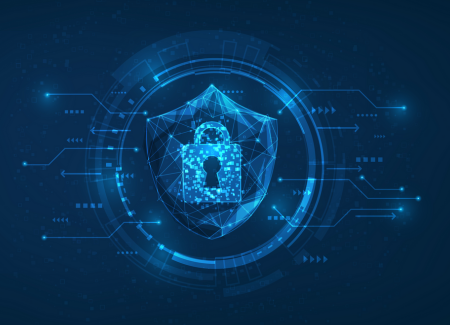How to Get into Cybersecurity and Make a Successful Career in it

Research indicates that more than 2.5 quintillion bytes of data are generated daily. In the past few years, organizations worldwide have collected this data from their customers at an unprecedented rate. Over the last two decades, costly data breaches and cyberattacks have awakened businesses to the need for top-notch, impenetrable cybersecurity. If you’re interested in learning how to get into cybersecurity, this career guide will be useful for you.
What is Cybersecurity?
 Mirroring the industry’s growth, professionals are vying to learn how to get into cybersecurity as a career. Internet-connected computers are usually vulnerable to several security threats, including unauthorized access, data theft, attacks, and hardware damage. This can disrupt the services they are designed to provide. Professionals in this industry work to expose these vulnerabilities and offer adequate protection.
Mirroring the industry’s growth, professionals are vying to learn how to get into cybersecurity as a career. Internet-connected computers are usually vulnerable to several security threats, including unauthorized access, data theft, attacks, and hardware damage. This can disrupt the services they are designed to provide. Professionals in this industry work to expose these vulnerabilities and offer adequate protection.
The cybersecurity industry caters to almost every modern organization. One must consider adequate security if they have a computer network to run a business. Aspirants must be highly adaptive and driven to learn as threats become more invasive and sophisticated. Cybercriminals and security providers constantly compete to outsmart each other. As technology advances and becomes more complex, the potential risks that hackers can exploit also multiply. Cybersecurity professionals work hard to ensure their systems’ dependability, integrity, and data privacy.
ALSO READ: What is Cybersecurity and Why is it a Great Career Choice for You
Recent Trends in Cybersecurity
According to a MarketsAndMarkets report, the size of the cybersecurity market will grow from $173.5 billion to $266.2 billion between 2022 and 2027. As enterprises worldwide continue to use more complex systems based on IoT (Internet of Things), they have greater exposure to security threats. In addition, costly cyberattacks on businesses have prompted the need to use new technologies like artificial intelligence, machine learning, and IoT in cybersecurity. These countermeasures also boost demand for new talent familiar with these technologies, which aligns with trends predicted by cybersecurity experts, who have noted a CAGR of 8.9% for the industry.
A large workforce functions remotely post-pandemic, creating an even greater need for secure networks. Trends like these also highlight the need for talented professionals in this industry to enter the workforce.
Our increasing reliance on automation has become apparent in recent years, which includes applications of automation in manufacturing plants and power generation and even the use of artificial intelligence technology in everything from self-driving vehicles to e-commerce applications. Even targeted advertising uses automation. Hackers exploiting weaknesses in these systems can have an overarching impact on the businesses. . The role of cybersecurity in such businesses is evident.
ALSO READ: Is Cybersecurity Hard? Does it Have a Good Scope of Growth?
Educational Requirements for Cybersecurity
These jobs demand specific skills and qualifications. You will need a degree in computer science, IT, systems engineering, or a similar field. Gaining proficiency in languages like Java, Python, Node, etc., is also vital.
A Bachelor’s degree will get your foot in the door for most cybersecurity firms, but your progression will depend on your skills. There are several certifications that professionals can apply for, which will help you upskill, giving a boost to your resume.
Many global universities offer Master’s degrees in cybersecurity. A degree can help you gain a better position in a firm. Beyond your educational qualifications, being proactive in gaining relevant skills is vital. For example, you can learn about threat modeling, ethical hacking, network security hardware, and software, among other relevant specialized skills. You can also stay up-to-date with the technology by exploring the cybersecurity courses at Emeritus.
Common Career Paths to Cybersecurity
If you’re wondering how to get into cybersecurity, there are several ways to do so, some of which are:
1. From Information Technology (IT) to Cybersecurity
Individuals from IT already understand networks and systems administration, along with their coding knowledge, which is also essential for cybersecurity professionals. Therefore, you will only need to gain a few cybersecurity certifications to migrate this industry.
2. From Networking to Cybersecurity
Network Security consists of access control, virus and antivirus software, application security, network analytics, and VPNs. Your experience with these will give you an edge when applying for roles in this industry.
3. From Software Development to Cybersecurity
Software developers can make a smooth and easy transition to this industry with their experience in programming languages and software systems. So simply acquire a cybersecurity certification and start applying for roles!
4. From Systems Engineering to Cybersecurity
As a systems engineer, your job is to install, configure, test, and maintain operating systems, application software, and system management tools. These particular technical skills also come in handy for several applications in roles for this industry. Brush up on your ability to perform penetration tests and vulnerability assessments and start applying for relevant positions.
List of Entry-level Cybersecurity Jobs
 Don’t have prior experience but still want to learn how to get into cybersecurity? Here are some entry-level positions you can apply for.
Don’t have prior experience but still want to learn how to get into cybersecurity? Here are some entry-level positions you can apply for.
1. Cybercrime Analyst
Cybercrime analysts focus on analyzing cybercrime events. They require an understanding of how malware attacks systems and the methodologies behind digital forensics, including identifying, extracting, analyzing, and reporting on cybercrime evidence.
2. Cybercrime Investigator
Cybercrime investigators gather information using technological solutions that check for illegal activities on the internet. They can work on recovering files on hacked computers or solving cyber crimes.
3. Incident Analyst / Responder
Incident analysts are assigned incidents which they then diagnose. Next, they determine whether to report or reject each incident. They also document the resolution of these incidents.
4. IT Auditor
IT auditors take care of the IT systems of organizations and develop processes to audit all aspects of the company’s network applications to ensure that the infrastructure runs as smoothly and efficiently as possible.
5. Information Security Analyst
Information security analysts monitor their organization’s networks for security breaches and investigate when they occur. In addition, they use and maintain data encryption programs and firewalls to protect sensitive information.
6. Junior Penetration Tester
Junior penetration testers help improve the security of a computer network by trying to find and exploit any vulnerabilities that a threat may use. They are ethical hackers who use their skills to anticipate and fix vulnerabilities before an attack.
7. Security Technician
Security technicians provide technical support, monitor alerts, and follow set procedures to protect information assets. In addition, they upgrade the security of computers and network systems.
ALSO READ: How to Become a Cybersecurity Analyst in 2022: 6 Steps to Follow
The cybersecurity industry has many opportunities for individuals who are up for a challenge and have the drive to learn new skills actively and expand their knowledge. The industry is growing extremely fast and offering talented individuals desirable perks. So don’t worry about how to get into cybersecurity. Just opt for an online cybersecurity course from Emeritus!
By Priya Iyer Vyas
Write to us at content@emeritus.org








